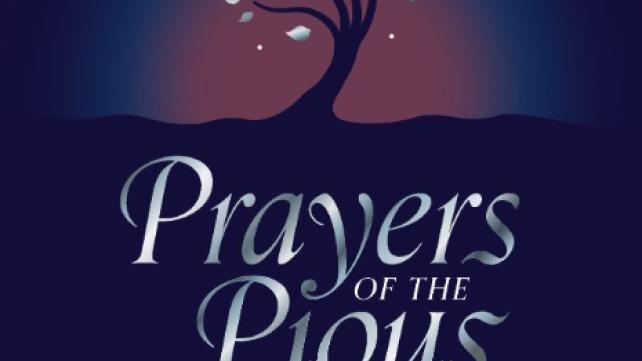
Shaykh Omar Sulieman may be one of the most well-known household names when it comes to Islamic scholarship in the U.S. today. His YouTube lectures are watched by hundreds of thousands of Muslims on a regular basis, his non-profit organization, Yaqeen Institute, works to clarify complex Islamic research for the masses, and his Ramadan series aims to give bite-sized lessons and reminders throughout the blessed month on how we can better connect to our deen. One such book, Prayers of the Pious, focuses on a single act of worship: dua.
I recently got my hands on this book through a local sisters’ halaqah. One evening, the sister leading chose to speak about the importance of dua in our lives and gave each person who attended that night a copy of Prayers of the Pious, mashaAllah. We were all surprised and grateful to be receiving such a gem on top of all the gems she shared with us that night, may Allah reward her. Inside the book are 30 chapters, each one just a few pages, that are dedicated to the analysis of a single dua from our pious predecessors - those Muslims who lived and practiced during the early times of Islam, many of whom were considered companions to the Prophet Muhammad himself, peace and blessings be upon him.
By walking you through each dua, Shaykh Omar did not just create another text about the prescription for dua. Instead, he paints a picture about the beautiful impact that dua can have in your life, encourages you to fill your own duas with heart and sincerity, and gives you glimpses into the lives of the individuals who made these duas, many of whom had their duas approved of by the Prophet Muhammad, peace and blessings be upon him, and accepted by Allah, the Most High.
One aspect I greatly appreciated about the book was the humanity of the individuals chosen. Sometimes when we think of our pious predecessors, what comes to mind is a picture of individuals who were known for their impenetrable faith, strength, and goodness. Sometimes when we see that picture, we can convince ourselves that there is no way we, with all of our flaws and shortcomings, could ever strive to live up to their status in faith or in deeds. While the individuals chosen in Prayers of the Pious were undeniably among the best generations, may Allah have mercy on them, Shaykh Omar gives us that brief glimpse into their personal lives. He shows that despite their great status, they too were human beings who struggled against their flaws, they too were human beings who feared falling into sin, and they too were human beings striving to hold onto their faith. Allahu alum, Allah knows best.
Not only does Shaykh Omar give us beautiful dua examples from historical greats like Abu Bakr as Siddiq and Umar bin Khattab, but we also get heartfelt examples from more complex individuals such as ‘Abd Al-Malik ibn Marwan and tragic examples from Asma’ bint Abi Bakr, may Allah be pleased with them. He also shares deeply honest and vulnerable examples from everyday Muslims who were content to never be named yet had their duas heard, recorded, and transmitted for us to learn from today.
Dua themes covered in Prayers of the Pious include asking Allah for a good ending, being honest with Allah about our sins and shortcomings, asking for the absolute best we could receive from Allah, having confidence in Allah’s abilities, recognizing our dependence upon Allah, and being sincere in our dua wording and approach to Allah.
Also included in the book is a section for dua journaling where you can take the examples discussed to begin crafting your own duas to Allah. As Shaykh Omar says in his introduction:
“By following this series on a daily basis each month, and by starting to record a personal dua journal, writing down your own prayers following the same manner that the pious predecessors used, you can hopefully connect to Allah in the same way they connected to Him.”
Prayers of the Pious is a beautiful addition to any Islamic home library and a wonderful resource for any individual looking to connect deeper with Allah this Ramadan, or any time, through open, heartfelt duas.
Melissa Barreto is a home-educating mother of five children and the Co-Founder of Wildflower Homeschool Collective, a homeschool organization based in Northern New Jersey.



Add new comment